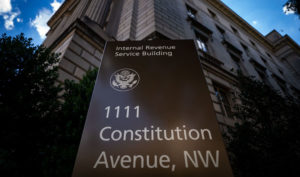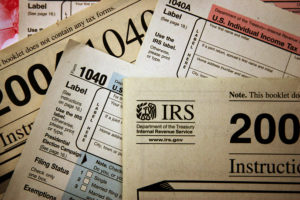
An IRS multi-year study finds compliance issues with the tax returns of several colleges.
The Internal Revenue Service (IRS) recently released the results of a multi-year study on tax compliance of colleges and universities. According to Lois Lerner, Director of the Exempt Organizations division within the IRS, “The audits identified some significant compliance issues at the colleges and universities examined.”
The final report, released in late April, synthesizes information that the IRS began collecting from colleges and universities in 2008 to comprehend how these tax-exempt entities treat “endowments, executive compensation, and unrelated business activities” in reporting their tax liability. The IRS sent questionnaires to four hundred randomly chosen colleges and universities and followed up with more detailed examinations of thirty-four institutions whose answers to the questionnaires suggested possible compliance problems. Roughly half of the schools examined are private, while the other half are public.
According to the IRS, the examinations revealed substantial underreporting of unrelated business income (UBI) and problems with executive compensation. Unrelated business income is income that tax-exempt entities generate from endeavors that are not “substantially related” to their tax-exempt objectives. Whereas colleges and universities are not taxed on income from pursuits that significantly contribute to their educational purpose, they do pay taxes on income from any unrelated trade or business—such as food service, golf courses, parking lots, and bookstores—even when proceeds of those activities fund the tax-exempt objectives. Not every dollar of UBI is taxed, however. The IRS allows for certain modifications, including the deduction of expenses directly attributable to the unrelated trade or business.
In 90 percent of its thirty-four examinations, the IRS found that schools had underreported taxable UBI. Some colleges or universities incorrectly deducted expenses associated with the schools’ educational mission from taxable UBI, which is not permitted because income from related activities is already tax-exempt. Further, over 40 percent of examined colleges and universities had improperly treated unrelated activities as “related” and therefore not subject to tax. And in 70 percent of cases, the IRS found that schools had deducted from UBI losses associated with endeavors that did not constitute a trade or business, which are the only permissible sources of UBI.
The IRS made more than 180 modifications to the taxable UBI reported by the colleges and universities examined, equaling roughly $90 million. It attributed a majority of the adjustments to five specific activities: advertising; facility rentals; arenas; golf courses; and fitness centers and athletics camps. In a particularly interesting observation, the IRS noted that 20 percent of the colleges and universities examined had obtained guidance about the classification of a particular business activity as related versus unrelated, but that in 40 percent of those cases the IRS disagreed with the advice given.
Problems with the reporting of compensation of colleges’ and universities’ top officials also surfaced in the IRS report. Private institutions are subject to a requirement that they reward their officers, directors, trustees and key employees (ODTKEs) with only “reasonable compensation.” If a college or university pays unreasonable compensation, the remunerated individuals and those responsible for ratifying the compensation amount must pay an excise tax. The burden lies with the IRS to rebut the presumption that compensation is reasonable if certain conditions are met, namely where an independent committee suggests and ratifies the compensation, the compensation is established using suitable comparability data, and the compensation-determination process is recorded on an ongoing basis.
The IRS found that, with respect to the private institutions examined, 20 percent had failed to use suitable comparability data in establishing executive compensation. These institutions referred to colleges and universities that were not truly comparable in aspects such as location, number of students and others, and were therefore not entitled to the benefit of the rebuttable presumption. Further, the IRS also noted that several adjustments to reported wages were necessary, at least in part because some colleges and universities neglected to account for non-monetary benefits such as social club memberships as part of wages.
Although the IRS cautioned against generalizing the results of its non-randomized study to other colleges and universities, Lerner noted that “[b]ecause these issues may well be present elsewhere across the tax-exempt sector, all exempt organizations need to be aware of the importance of accurately reporting unrelated business income and providing appropriate executive compensation.”



